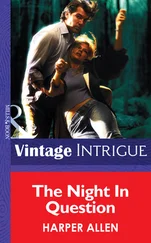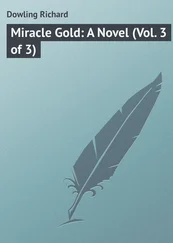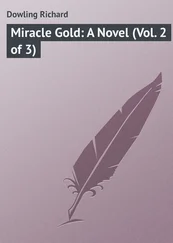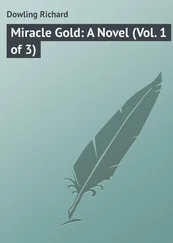Richard Gordon - A QUESTION OF GUILT
Здесь есть возможность читать онлайн «Richard Gordon - A QUESTION OF GUILT» весь текст электронной книги совершенно бесплатно (целиком полную версию без сокращений). В некоторых случаях можно слушать аудио, скачать через торрент в формате fb2 и присутствует краткое содержание. Жанр: Юмористическая проза, на английском языке. Описание произведения, (предисловие) а так же отзывы посетителей доступны на портале библиотеки ЛибКат.
- Название:A QUESTION OF GUILT
- Автор:
- Жанр:
- Год:неизвестен
- ISBN:нет данных
- Рейтинг книги:4 / 5. Голосов: 1
-
Избранное:Добавить в избранное
- Отзывы:
-
Ваша оценка:
- 80
- 1
- 2
- 3
- 4
- 5
A QUESTION OF GUILT: краткое содержание, описание и аннотация
Предлагаем к чтению аннотацию, описание, краткое содержание или предисловие (зависит от того, что написал сам автор книги «A QUESTION OF GUILT»). Если вы не нашли необходимую информацию о книге — напишите в комментариях, мы постараемся отыскать её.
A QUESTION OF GUILT — читать онлайн бесплатно полную книгу (весь текст) целиком
Ниже представлен текст книги, разбитый по страницам. Система сохранения места последней прочитанной страницы, позволяет с удобством читать онлайн бесплатно книгу «A QUESTION OF GUILT», без необходимости каждый раз заново искать на чём Вы остановились. Поставьте закладку, и сможете в любой момент перейти на страницу, на которой закончили чтение.
Интервал:
Закладка:
They sat on red-plush chairs. The quack doctor leaves threadbare gentility to bask in the tarnished sun of his wife, Eliot thought. Ethel le Neve inhabited the real world, which the audience had entered the theatre to forget.
Nancy sat squeezing Eliot's hand. Before Baby's illness she was a regular New York theatregoer, always in a large party, all beautifully dressed, awarer of affording pleasure to the ordinary men and their wives peering at them through opera-glasses from the cheaper seats. It was a social gathering, Nancy could barely remember the plays. She supposed this theatre of faded plush and scratched gilt resembled that her friends' fathers recalled fondly, 'The Rialto' on Broadway south of 42nd Street.
The 'Met' was large, a 4000-seater, fifty years old, built over the White Lion pub, which had a reputation among Cockneys for sing-songs and knees-ups. The performers were in competition with its generous furnishing of bars. The West End theatres seemed as formal as visiting relatives on a Sunday afternoon. The flickering displays in the picture houses as lacklustre as a dance of ghosts. The music-hall was like a Bank Holiday outing, when everyone expected to enjoy themselves.
The songs and sketches went to the audiences' hearts, because they exhalted, lampooned or consoled their everyday joys and pains. All of them felt the relationship with lodger or landlord, mother-in-law or pawnbroker, what it was like to be stoney broke or rolling drunk. Everyone ate kippers and went to the seaside, knew husbands who were henpecked, or roving or cuckolds. Everyone knew they peopled the greatest country on earth, and that all foreigners were ridiculous, particularly as unable to speak English. When the Great Macdermott had his audiences at the London Pavillion thundering back, 'We don't want to fight, but, by Jingo, if we do!' it was a threat which deserved Britain's enemies taking seriously.
Moustached and brilliantined, the conductor rose amid his stiffshirted orchestra, bowing deeply to the whistling and clapping. After a perfunctory overture, the electric candles of the chandeliers dimmed, the red curtain rose on a man in furs outside a stage-property igloo, with six seals who tossed brightly-coloured balls to each other, played tunes on a rack of rubber-bulbed motor-horns, climbed ladders, performed acrobatics and jumped into a glass water-tank.
Nancy was puzzled. She had steeled herself for an evening of blue jokes and girls with slashed skirts, like the burlesque shows in the Bowery, where she was no more likely to find herself than at a boxing-match. Nothing could be more respectable than performing seals. Crippen sat engrossed, hand limp on the plush edge of the box. Eliot fancied he had seen the same act as a carousing medical student, but perhaps it had been performing dogs.
The seals were followed by Weldon Atherstone, the monologuist, with top-hat, tails and ebony cane. Perfect tailoring was his trademark, like the black half-moons of George Robey's eyebrows, or Albert Chevalier's suit of Cockney costermonger's button-covered 'pearlies'. He did Fagin in the condemned cell from _Oliver Twist,_ the music-hall falling as silent as a church.
'The black stage, the cross-beam, the rope…' Atherstone's low voice seemed to ooze from him. 'All the hideous apparatus of…death.'
Violent applause. Only forty years ago, Eliot reflected, this audience in its ancestors' shoes waited excitedly through the night for the morning's execution outside Newgate Jail. Calls of 'Blackleg!' came from half-a-dozen voices-planted by the strike committee he suspected. Next appeared a pair of Chinese wire-walkers in kimonos and plate-like hats. Then the orchestra struck up Yankee Doodle. Belle had not seen the pinnacles of New York for thirteen years, but an American act was thought so smart on the London stage, some natives changed their accent to Brooklyn and their costume to Wild West.
Eliot saw Crippen's hand tighten on the plush.
Belle's waist was so pinched between bursting bosom and spreading hips, it looked to Eliot in danger of exploding like the bound-up barrel of some ancient siege-artillery pressed back to service. The skirt of her green silk gown foaming with lace trailed a yard behind her. Her hair was in bright blonde curls, as tight as the head of a cauliflower. Her heavy face was vivid with greasepaint, dusted with powder like an apple-dumpling with flour.
She stood between two vases of artificial red roses, holding a mirror edged with gold tassels, which she flashed along the stalls. Fixing on a sallow-faced man with a limp moustache, she started to sing, _Who'll be My Sweetheart Tonight?._
The thin notes fell into the auditorium like shot sparrows. 'Blackleg!' and 'Scab!' came from the same seats, whistling and hissing from the gallery. Belle interpreted the noise as shouts of approval and hoots of delight. She favoured her audience with repartee-not the daggered Cockney wit of Bessie Bellwood, the rabbit-skinner's daughter who lived with the Duke of Manchester, but 'Oh, you naughty boy!' and 'Wouldn't you like me to hold your hand?' Expression and utterance had the mawkish combination of ardent promise and coy chastity in equal proportions.
The conductor was looking nervously over his shoulder. Belle stopped. The house was in uproar. She nervously exchanged a word with him, smiled bravely and began _Something to Warm your Feet On._ Ha'pennies started to fly across the footlights. The strikers had come well armed. Coinage was augmented by eggs, one cracking against Belle's skirt. She burst into tears, rushing from the stage still clutching her mirror. The curtain fell. The noise coalesced to a chant, 'We want our money back!' Three rough-clothed men had quit the frustrating remoteness of the gallery to climb over the footlights. A rousing roll came on the drums.
'Stand up,' Eliot hissed at Nancy.
'Why?'
'The National Anthem. Always played after a show.'
Everyone in the house, even the intruders on the stage, stood stiffly while the orchestra on their own feet played _God Save the King._ The conductor cautiously signalled for another drum-roll and repeated the verse. The tension had gone. A heavily-moustached man in evening dress appeared gingerly through the curtain to announce hastily that money would be returned at the box-office.
'Belle's talents aren't suited to these audiences,' said Crippen. 'She was born for opera.'
His face was pink, his bland expression blighted with disappointment and shame. The evening had done Ethel good, Eliot thought.
13
'Well, Belle dear, I forgive you, though I daresay hundreds wouldn't,' said Clara Martinetti amiably.
'Oh, gee, don't go on about it,' Belle told her curtly.
'I shan't dear, I promise I'll not utter another word, now I've had my say. But you are Honorary Treasurer of the Music Hall Ladies' Guild, aren't you, dear? And to go strike-breaking-'
'Wasn't Belle punished enough on the night?' Paul Martinetti asked charitably.
'Getting the bird is the worst punishment in the whole world,' Clara agreed. 'I'm sure Peter could see that.'
'Oh, yes, I'd much rather be hanged,' Crippen assented mildly.
'But Clara sweetie, don't you see? I only got hissed because I was a blackleg. There were folk planted in the house for no other purpose than to wreck my act. I'm not downhearted, no sir!' Belle's voice rose. 'I've had offers last week from the Euston, from Collins's across in Islington, even from the Hippodrome. And I could take my pick of the provincial touring companies tomorrow. Couldn't I, Peter?'
Clara's expression indicated sour disbelief sugared with politeness.
It was a week later, just before ten on the evening of Monday, January 31, 1910. The four sat in the downstairs breakfast room at Hilldrop Crescent. They had just finished dinner-loin of pork with jacket potatoes, followed by blancmange with strawberry jam. Eliot and Nancy had been asked, too.
Читать дальшеИнтервал:
Закладка:
Похожие книги на «A QUESTION OF GUILT»
Представляем Вашему вниманию похожие книги на «A QUESTION OF GUILT» списком для выбора. Мы отобрали схожую по названию и смыслу литературу в надежде предоставить читателям больше вариантов отыскать новые, интересные, ещё непрочитанные произведения.
Обсуждение, отзывы о книге «A QUESTION OF GUILT» и просто собственные мнения читателей. Оставьте ваши комментарии, напишите, что Вы думаете о произведении, его смысле или главных героях. Укажите что конкретно понравилось, а что нет, и почему Вы так считаете.






